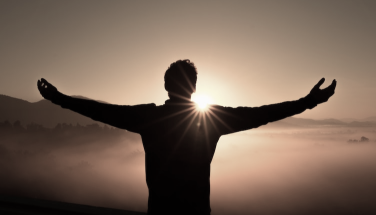One of the ironies of our time is that we are part of an economic system that requires citizens to feel permanently empty and dissatisfied in order to always want more than we have.
The economy is not something foreign to us. Human beings are part of it in the same way that fish are part of the ocean. So much so, that it could be described as the game board on which we have built our existence, and on which three main players relate and interact through money: the monetary system, organizations and human beings. It should be said that this item is regulated by laws designed by the States. However, beyond their influence, the real power resides in the citizens: with our way of earning money (work) and spending it (consumption) we shape the shape that the system takes every day.
Beyond meeting our needs, over the last decades we have convinced ourselves that we must have material desires and aspirations whose satisfaction depends on our happiness. And is not for less. In 2022, advertising investment in Spain exceeded 12,214 million euros, according to the Infoadex agency. Thus, companies spent all that money with the aim of persuading us to buy their products and services. It should be said that this multi-million dollar investment promotes certain beliefs, values and priorities in our paradigm. That is, in our way of understanding and living life. Proof of this is the triumph of hyper-consumerism.
In addition, while we continue paving and urbanizing nature, it is worth remembering that the economy created by the human species is a subsystem within a larger system: planet Earth, whose physical surface and natural resources are limited and finite. In fact, believing that economic growth is going to solve our existential problems is like thinking that we can drive through a concrete wall at the wheel of a car with full throttle on the accelerator.
THE DECAY OF THE SYSTEM
“It is not a sign of health to be well adapted to a deeply sick society.”
(Jiddu Krishnamurti)
However, today it is common to hear politicians, economists and businessmen affirm that “the capitalist system is the least bad” of all those that have existed throughout history. And that “fortunately” signs of “economic recovery” are already beginning to be seen. In other words, the general idea is to continue growing and expanding the economy as we have been doing. That is, without taking into account the human and environmental costs. What it is about is “overcoming as soon as possible” the pothole caused by the financial crisis.
Faced with these types of statements, we can conclude that as a society we are not learning anything that this crisis has come to teach us. Hence, we continue to look the other way, ignoring the true root of the problem. We are not referring to war, poverty or hunger suffered by millions of human beings around the world. Nor to the voracity with which we are consuming the planet’s natural resources. Nor are we talking about the abuse and dependence on fossil fuels -oil, coal and natural gas-, which pollute nature so much. Not even global warming. These are just some symptoms that reveal the true underlying conflict: our own unhappiness.
Blinded by our materialistic desire, we lead a second-hand existence. It seems as if we have forgotten that we are alive and that life is a gift. Proof of this is that existential emptiness has become the most common contemporary disease. So much so, that it is normal to recognize that our life lacks purpose and meaning. And also that many confuse true happiness with substitutes such as pleasure, satisfaction and euphoria provided by the consumption of material goods and entertainment.
THE DISCOMFORT OF SOCIETY
“We are producing sick human beings to have a healthy economy.”
(Erich Fromm)
The paradox is that the economic growth that keeps the system alive is based on the chronic dissatisfaction of society. And the irony is that the more the consumption of antidepressants like Prozac or Tranquimazin grows, the more the gross domestic product figure increases. Hence, it is not unreasonable to affirm that human discomfort promotes economic well-being.
Faced with this panorama, the question appears by itself: how long are we going to postpone the inevitable? It is time to look in the mirror and question the beliefs with which we have created our false concept of identity and on which we are creating a purely materialistic lifestyle. Although money allows us to lead a more comfortable and secure existence, true happiness does not depend on what we have and achieve, but on what we are. To start building an economy that is complicit in our happiness, each one of us must take responsibility for creating value through our values. And this learning involves finding what we tend to desperately seek outside in the last place we have been told to look: within ourselves.




